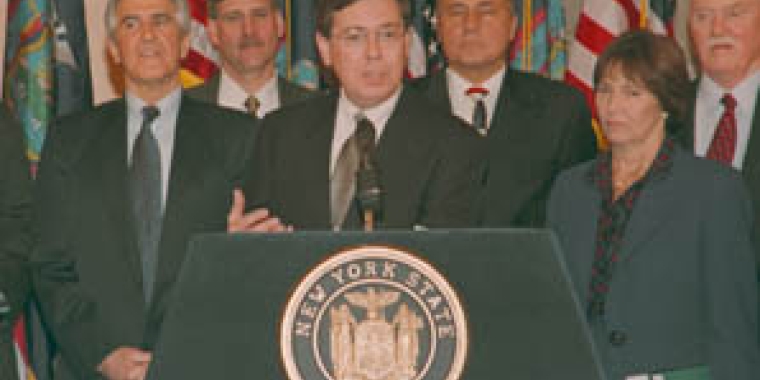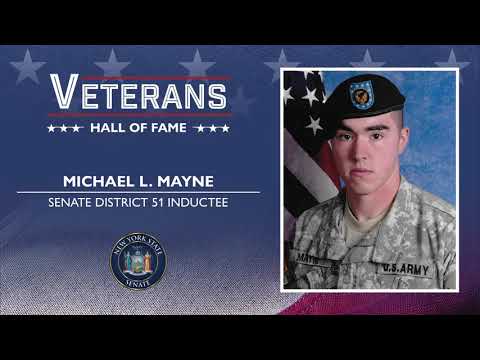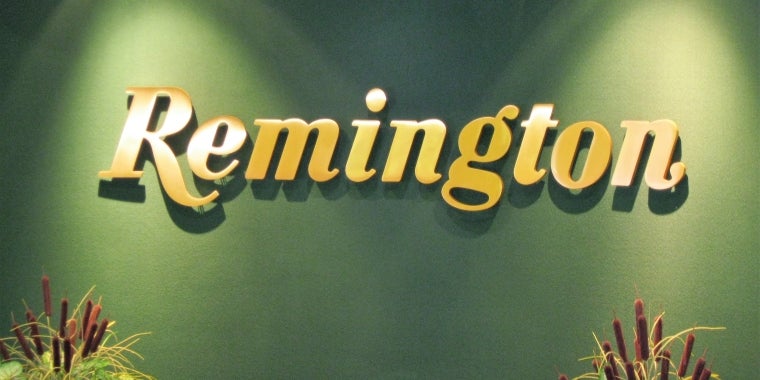
Senate Announces Energy Plan

State Senator James L. Seward and the The New York State Senate today announced a comprehensive energy plan that would provide $350 million in relief from high energy costs to small businesses to help them create and retain jobs.
Like millions of New York homeowners, small businesses have cited high energy costs as a significant problem that is hurting their bottom lines.
In addition to announcing a plan helping small businesses, the Senate will act on an energy plan that would build on the recent $100 million increase in the Home Energy Assistance Program by providing heating assistance to more senior citizens, capping the state taxes on gasoline and encouraging energy conservation and development of alternative energy sources to lessen our dependency on foreign oil.
"When you roll out of bed in the morning you’re paying higher costs to heat your home, when you turn on the lamp you’re paying higher costs to light the room and when you fill up your car on the way to work, you’re paying more for gasoline," Senator Seward said. "The Senate’s energy assistance plan would give some money back to small businesses so they don’t have to cut someone’s job to pay the utility bill. It would go beyond the HEAP plan we passed last week by providing more direct energy assistance to 640,000 seniors and it includes a long term vision for alternative energy sources and conservation plan to reduce our dependence on foreign oil."
"As a result of natural disasters, crude oil shortages, and increased oil consumption throughout the world, energy prices have skyrocketed," Senator James Wright (R-C-I, Watertown), chairman of the Senate Committee on Energy and Telecommunications, said. "In response, the Senate has put forth bold new ideas to counteract high prices and looming problems. The enactment of the sales tax cap on gasoline, the creation of the "Senior Heat" program, providing relief to small businesses, and a continued focus on new energy technologies will provide relief to consumers in the short and long term."
ENERGYRELIEF FOR SMALL BUSINESSES
Most of the new jobs in New York State are being created by small businesses. Small business owners have cited increasing energy costs as one of the biggest problems they face in staying competitive.
The centerpiece of the Senate energy plan would address that concern by providing a $350 million refundable tax credit that would help 386,000 eligible small businesses across New York State afford the rising cost of energy. The Senate small business energy assistance bill will be sponsored by Senator Mary Lou Rath (R-C, Williamsville). Businesses with fewer than 20 employees would be eligible for the assistance. Businesses of this size employ about 1.4 million New Yorkers.
"The high cost of energy limits many local businesses from being able to expand and forces others to make cuts," said Senator Rath. "This plan will give small businesses, and the 1.4 million people they employ, the help they need to remain economically competitive, to protect jobs and even create ones, and to grow their businesses."
Under the plan, a credit of two cents per Kilowatt Hour (KwH) would be applied directly to eligible businesses’ tax liability, while businesses that do not owe taxes would receive a rebate check. The benefit level of two-cents per kilowatt hour approximates the rate benefit provided under the Power for Jobs program, which has proven to be one of the state’s most important economic development programs.
The Senate plan excludes businesses that already receive similar benefits through the Empire Zone and Power for Jobs programs. It also excludes sole proprietorships working out their residence, since it would be difficult to segregate residential electric usage from business usage.
HELP FOR HOME HEATING
The Senate will acton "Senior Heat" program legislation, sponsored by Senator Nicholas Spano (R-C-I-WF, Westchester), would provide $200 rebate checks to eligible senior citizen homeowners to help offset the cost of home heating. Seniors approved for the enhanced STAR school property tax rebate program (at least 65 years old with an annual income of less than $64,650) would be eligible for the Senior Heat program. The plan would also provide a $100 refundable state tax credit to eligible senior citizens who rent and pay for their heat. The program would provide an estimated $140 million in assistance to more than 640,000 senior homeowners and renters. (S.5965A, Sen. Spano)
"The increase in HEAP aid we approved last week was important to provide assistance to low income New Yorkers, but there are hundreds of thousands of seniors who don’t qualify for HEAP that also need help affording the cost of heating their homes," Senator Spano said. "The Senate's Senior HEAT program would provide much-needed aid to senior citizens struggling to afford heating fuel, but do not qualify for HEAP assistance."
The Senate will also act on a resolution, sponsored by Senator Martin Golden (R-C-I, Brooklyn) asking the federal government to increase the contingency funding for the low income Home Energy Assistance Program (HEAP). Last week, the Senate passed an agreed-upon bill that will provide an additional $100 million in emergency funds for the Home Energy Assistance Program to ensure that seniors and low-income New Yorkers are able to afford to heat their homes this winter. New York State has received $15 million in 2005-06 contingency HEAP funding, compared to $42.4 million in contingency funding in 2004-05.
"New York State has responded and significantly added funds to help seniors and low income New Yorkers face the rising costs of home heating, the federal government needs to act now to release the additional funds available to ensure that no one has to choose between heating their homes and paying for food and medicine," said Senator Golden.
CAP GAS TAXES
The Senate will act today on a bill to place a cap on the state and local sales taxes on gasoline that would save consumers about $240 million annually as gas prices currently average nearly $2.60 per gallon, and all localities participate. The New York City Council, and many other local government officials, have also asked the Senate to adopt a cap on gas sales taxes.
The Senate energy plan would cap the state and local sales tax on gasoline at a taxable value of $2 per gallon. The cap would save motorists an estimated $120 million annually in state sales taxes, if gas prices stay at about $2.60 per gallon. The cap covers the local sales tax on gas unless a local government votes to opt out of the cap. If all localities participate, the plan would generate another $120 million in savings. (S.5968, Senator Joseph Robach, R-C-I-WF, Rochester).
"The spike in gas prices has affected everyone, working men and women, businesses, families and our senior citizens," Senator Robach said. "I am happy to sponsor this legislation that will give immediate relief to motorists by capping sales tax on motor fuel and diesel fuel resulting in a significant annual savings for families."
ENCOURAGING BIO FUEL PRODUCTION
The Senate will also act today on legislation (S.5846A), sponsored by Senator James Wright (R-C-I, Watertown), that would provide manufacturers of qualified bio-fuel products, primarily ethanol and bio-diesel, with a refundable tax credit. The credit would be 15 cents a gallon, capped at $2.5 million per plant, per year, for up to four years.
"It is important that we provide incentives for the production of biofuels," said Senator Wright. "In addition to the air quality and environmental advantages, biofuels, such as ethanol and biodiesel, are viable long-term alternatives to petroleum based fuels. Increased investment in biofuels will not only have a positive economic impact on the state, but also assist with our overarching efforts to reduce our dependence on foreign oil."
The federal government and industry experts estimate that drivers in New York State would see a minimum savings of eight cents a gallon at the pump if New York State could provide a substantial amount of the ethanol that will be required to be used by the new Federal Energy Act of 2005. It is estimated that the credit will save New York State taxpayers $600,000 in SFY 2006-07 and $10 million a year by SFY 2010-11. As more New York State produced bio-fuels are added to the mix of gasoline at the pump, consumers will see a further easing of gas prices.
ALTERNATIVE FUEL VEHICLES
The Senate will also act today on a bill (S.5763B), sponsored by Senator Carl Marcellino (R, Syosset), that would extend through the end of 2006, the recently expired alternative fueled vehicle tax credit. The credit would apply to actual alternative fuels such as methanol, ethanol and fully electric vehicles. The bill also reestablishes a State sales tax exemption for the purchase of refueling property equipment. The bill is estimated to provide $3 million a year in credits through SFY 2007-08.
"By encouraging people to purchase alternative fuel automobiles we are improving the quality of life for all New Yorkers," Senator Carl Marcellino (R, Syosset) said. "Whether you are worried about skyrocketing prices at the pump, or you are concerned with doing your part to fight the greenhouse effect, alternative fuel cars are good for your wallet as well as the environment."
ALTERNATIVE ENERGY PROPERTY TAX EXEMPTION
The Senate will act today on legislation to extend for four years, a law that allows localities and school districts to provide a full or partial exemption for real property taxes on land that contains alternative energy generation systems such as wind and solar power and farm waste to energy systems. The law is scheduled to sunset on January 1, 2006. (S.5966A, Sen. Flanagan)
"By providing tax incentives we can encourage positive, environmentally conscious ways to produce electricity and fuel," Senator John J. Flanagan (R,C-East Northport) said. "Cutting taxes is an effective way to expand our use of alternative sources of energy and reduce our dependence on foreign oil."
ENERGY STAR EXEMPTION
The Senate will act today on a measure to eliminate the state sales tax on insulating materials such as high efficiency windows, doors, weather-stripping, pipe sheathing and alternative energy systems in or attached to a building such as wind power or fuel cells. In addition, the bill would provide four sales tax free weeks (one per season) on a variety of energy star products, such as washers, dryers, refrigerators, dishwashers, furnaces and hot water heaters. These measures are estimated to save New York State taxpayers $40 million a year. (S.5970A, Sen. Hannon)
"This bill would provide additional incentive for consumers to purchase Energy Star rated products and alternative energy systems so they can save energy and save money," Senator Kemp Hannon (R-C-I, Garden City) said.
ALTERNATIVE ENERGY EQUIPMENT
The Senate will act today on legislation (S.785A), sponsored by Senator Charles Fuschillo (R-C, Merrick), that would provide a tax credit for businesses that install alternative energy equipment such as wind, solar or fuel cells. This bill would save New York State businesses $15 million a year beginning in SFY 2006-07.
"This legislation will assist businesses to reduce their reliance on nonrenewable sources of energy by allowing them to save money and to gain some cost certainty in the future," Senator Fuschillo said. "More important, this legislation will deliver that same cost certainty to consumers, since prices would not be as affected by foreign energy costs. And all this is accomplished while helping to achieve everyone’s main goal of protecting the environment for future generations."
AIRCRAFT FUEL
The Senate will act on legislation (S.5755B), sponsored by Senator Nicholas Spano (R-C-I-WF, Westchester), that provides enhanced exemptions for Petroleum Business Taxes on qualifying aircraft flights. The aviation industry would save an estimated $7 million under the bill, but the state revenue impact is neutral.
"The elimination of the petroleum business tax on aviation fuel will benefit New Yorkers by reducing the cost of flights and encouraging airlines to offer more intrastate flights at cheaper prices. With the costs of gasoline skyrocketing, the time to eliminate this tax is now," Senator Spano said.
####



